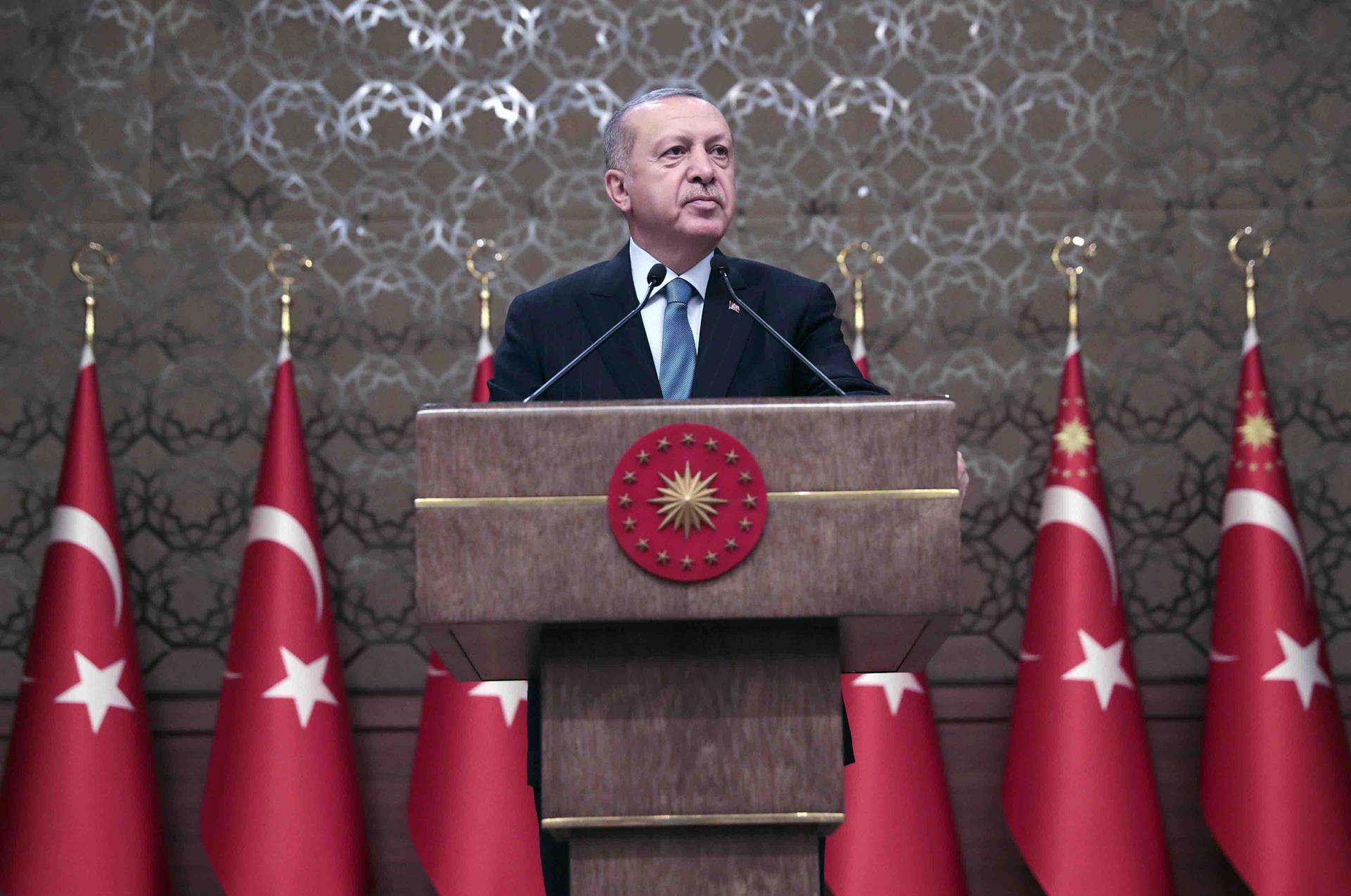Turkey pushes ahead with S-400 system adding to tensions with US
WASHINTON — After months of wrangling over US jets and Russian defence systems, a defiant Turkey said it will go through with its purchase of Russia’s S-400 missile defence system and find alternatives to the United States' F-35 warplanes.
“We are already partners in the F-35 manufacturing programme. We participate in this project. We have paid the necessary amount,” Turkish Foreign Minister Mevlut Cavusoglu said. “There are currently no problems with this but, in the worst-case scenario, we will have to satisfy our need in another place, where the best technologies will be offered.”
This came after Turkey rejected the United States’ end to oil sanctions waivers.
“The #US decision to end sanctions waivers on #Iran oil imports will not serve regional peace and stability, yet will harm Iranian people,” Cavusoglu wrote on social media. “#Turkey rejects unilateral sanctions and impositions on how to conduct relations with neighbours.”
Turkey, traditionally a US ally, isn’t likely to get backing from the US Congress, whose members have questioned Turkish President Recep Tayyip Erdogan's jailing of US citizens as human rights abuse and his security detail beating protesters in Washington two years ago. On April 25, they cited accusations of criminal cooperation with Venezuela.
The Turkish Foreign Ministry reiterated the plan, Russian government news agency Tass reported. "We have no intention of claiming that we will not purchase the Patriot systems," Foreign Ministry spokesman Hami Aksoy said at a briefing April 26. "The same goes for the S-400 issue."
Congressional critics argue combining the F-35s and the S-400 missile-defence system poses a security risk because the Russians may gain insight into US technology on the fighter jets.
Congress threatened to end the F-35 programme completely and has said that Turkey could face reprisals based on the Countering America’s Adversaries Through Sanctions Act if it goes through with the S-400 sale. If Turkey does not receive the F-35s, it will lose the manufacturing, repair and service jobs associated with the programme.
In Athens, on April 22, at the invitation of the European Public Law Organisation, US Senator Bob Menendez, a Democrat from New Jersey, gave a speech on security cooperation in the Eastern Mediterranean.
He called Erdogan's “warming relationship” with Russia “disturbing,” saying Russia can’t be considered a reliable partner after invading Ukraine, influencing US elections and chemical weapons attacks in the United Kingdom.
“Turkey’s unfathomable intention to purchase the S-400 missile system is dangerous in the context of NATO and reckless in the context of its own long-term security,” Menendez said.
Cavusoglu tried to reassure US officials by saying the missile system poses no threat to NATO systems, reported Daily Sabah, a pro-government newspaper in Turkey.
Daily Sabah reported that Turkish Defence Minister Hulusi Akar said Turkey has a “Plan B” in case the United States ends deliveries of the F-35s to Turkey. There are 35-40 Turkish pilots training on F-35s in Arizona and the newspaper reported that Turkey received two more F-35s recently.
Menendez also attacked Turkey’s human rights record.
“Hundreds of academics, opposition activists and journalists languish in prison. In fact, Turkey leads the world with the most jailed journalists,” Menendez said in prepared remarks. “Recently, Human Rights Watch reported that Turkey is arbitrarily jailing hundreds of lawyers. Targeting lawyers is a tactic we see from the worst of oppressive regimes, not what we expect from a NATO ally.”
Those being held include US citizens and embassy employees, Menendez said.
Menendez, along with Senator Marco Rubio, a Republican from Florida, introduced a bill that offers increased defence for Turkey’s neighbours and stops the delivery of the 100 F-35s if Turkey buys the S-400 missile system.
Rubio stepped up accusations when he tweeted an article from Bloomberg News accusing Turkish President Recep Tayyip Erdogan of creating a secret, criminal network that allowed Venezuela to trade gold for food from Turkey.
“#MaduroRegime & #Turkey have created a trading scheme that enriches a #MaduroCrimeFamily crony,” Rubio wrote. “Now investigators from at least 3 countries are looking into this criminal scheme built on gold stolen from #Venezuela & food trade with #Erdogan.”
Senator Jim Inhofe, a Republican from Oklahoma; Senator Jack Reed, a Democrat from Rhode Island; Senator Jim Risch, an Idaho Republican; and Menendez wrote a column published in the New York Times April 9 saying Turkey may not have both the F-35s and the S-400.
“The S-400 is the most advanced system produced to date in Russia’s quest to defeat stealth technology -- the system Russia built to shoot down the F-35 fighters,” the senators wrote.
The senators offered to support Turkey should Russia retaliate if the country pulls out of the S-400 deal. This could play out in Syria, where Russia controls the airspace as Turkey has been on the ground fighting the Kurdish People's Protection Units.
Menendez said in his speech that the sanctions punish countries that have “significant transactions with the Russian defence sector.”
The S-400 is to be delivered to Turkey in July while the F-35s were to arrive in November. The Pentagon in April blocked delivery of the jets until Turkey gives up the S-400 system. Turkey planned to buy 100 of the jets.
During a Senate Foreign Relations Committee confirmation hearing, US Ambassador to Turkey nominee David Satterfield said he would continue to ensure Turkey understands it may not participate in both the S-400 and the F-35 programmes.
He also said Turkey is an ally. Turkey had been “integral” in finding a solution to Syria and in defeating ISIS, as well as in hosting 4 million Syrian refugees, Satterfield said.
“Turkey has stood firm in support of Ukraine’s sovereignty and territorial integrity, refusing to recognise Russia’s attempted annexation of Crimea,” he said. “We have worked together to counter terrorism.”
Kelly Kennedy is an Arab Weekly correspondent in Washington.
Copyright ©2019 The Arab Weekly — distributed by Agence Global







